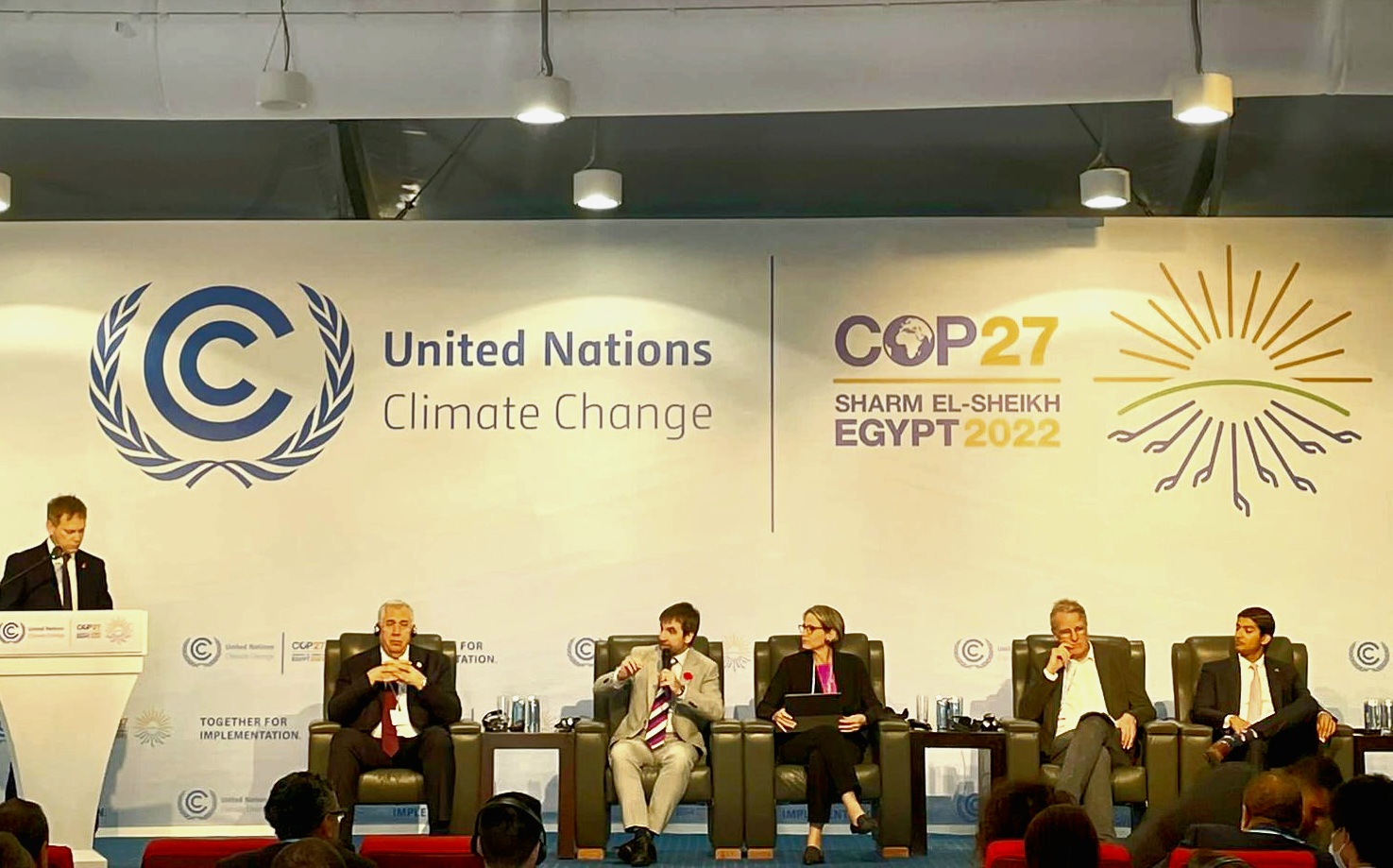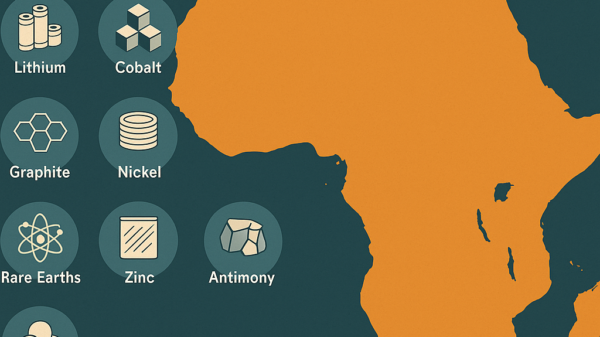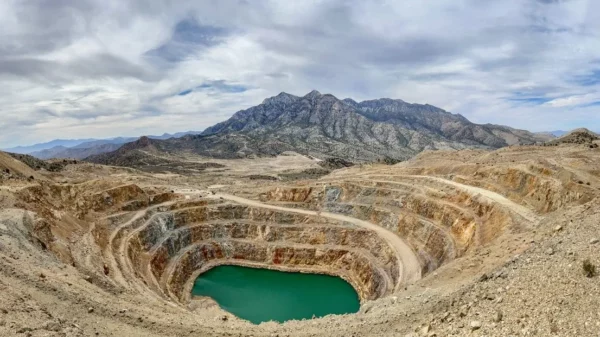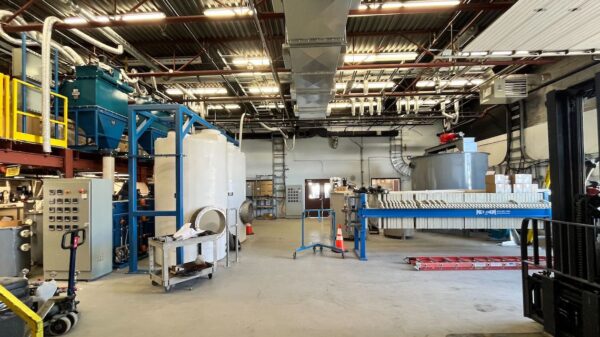The United States and Canada are set to collaborate in different regulations toward combating methane gas emissions in oil and gas operations such as eliminating routine venting, enhancing leak detection and addressing other problems in the industry.
Last week, Environment and Climate Change Canada announced that during the United Nations Climate Change Conference (COP27), Canada’s Minister of Environment and Climate Change Steven Guilbeault and the U.S. presidential envoy for climate John Kerry said both countries want to collaborate to reduce methane emissions from oil and gas operations in North America.
During the COP27, both representatives agreed there is existing room for improvements in the industry such as eliminating routine venting and flaring, enhancing leak repair and addressing problems such as blow-downs and other large releases.
Earlier this year, Minister Guilbeault committed to working with the Canadian oil and gas industry to identify ways to achieve net-zero emissions by 2050 and reaffirmed Canada’s commitment to reduce methane emissions by at least 75 per cent by 2030.
Last week, Environment and Climate Change Canada also published a framework outlining new regulations for methane emissions from the oil and gas sector in order to achieve at least a 75% reduction in oil and gas methane by 2030 relative to 2012. The draft regulations will be published early next year.
Today at #COP27, Minister Guilbeault met with U.S. @ClimateEnvoy John Kerry to discuss collaboration on tackling methane emissions from the oil and gas sector. 🇨🇦-🇺🇸
Read more: https://t.co/zLcMNawkar pic.twitter.com/c6GWqVa1eT
— Environment Canada (@environmentca) November 10, 2022
Cutting oil and gas methane emissions, one of the fastest and most cost-effective ways to combat climate change
Methane is 86 times more harmful than carbon dioxide over a 20-year period. The gas contributes to ground-level ozone that causes serious health problems, such as lower lung function and asthma attacks.
The Conference of the Parties (COP) is an annual meeting that brings together 197 parties to the UNFCCC. It runs from Nov. 6-18 in Sharm el-Sheikh, Egypt and gathers experts from different countries to discuss actions to tackle climate change.
The Canadian Environment and Climate Change office said that profit margins are robust and energy prices are high, therefore, it is now the time to invest to reduce emissions in these sectors has arrived.
“Cooperation between our two countries on methane emissions in the oil and gas sector is critical to fighting climate change, strengthening our economies, and protecting the health and safety of North Americans,” Minister of Environment and Climate Change Steven Guilbeault said in a statement last week.
At #COP27, Canada is working hard to achieve a better outcome for the planet and people.
How can we help communities most vulnerable to the impacts of #ClimateChange?
Watch Minister Guilbeault’s clip: pic.twitter.com/W73zXEX80Z
— Environment Canada (@environmentca) November 11, 2022
Read more: U.S. and UAE sign clean energy agreement to move away from fossil fuels
Read more: Canada investing in new ‘non-emitting’ nuclear power technologies: Minister of Natural Resources
Through the Oil and Gas Climate Initiative, both countries are pushing some of the largest oil and gas firms to have a target of near-zero methane emissions by 2030. In February last year, the Roadmap for a Renewed U.S-Canada Partnership and the US-Canada High-Level Ministerial Dialogue on Climate Ambition was announced which reaffirms a shared commitment to reducing oil and gas methane emissions to protect public health and the environment as guided by best science practices.
Canada supported the Global Methane Pledge last November which commits to a collective goal of reducing human-caused emissions by 30 per cent by 2030 and more recently joined in support of the GMP Energy Pathway.
Last December, Canada did a federal review of the country’s oil and gas methane regulations in order to reduce emissions by 40-45 per cent by 2025 compared to 2012 levels.
Read more: Nikola Corporation lays out its hydrogen production plans ahead of Biden’s Inflation Reduction Act
Read more: Baseload Energy presents 5 uranium exploration plans in northern Saskatchewan
“Cooperation on methane between the United States and Canada is, and will continue to be, a valuable tool in cutting emissions in our respective countries and around the world, said John Kerry who was U.S. Special Presidential Envoy for Climate.
“Canada’s new regulatory framework should provide a practical and strong step forward towards achieving its target of reducing oil and gas methane emissions by at least 75 per cent by 2030, said International Energy Agency’s (IEA) executive director Fatih Birol.
“The IEA has identified the transformative potential of reducing methane emissions. If the world reduces methane emissions by 30 per cent by 2030, the goal of the Global Methane Pledge, this would have a similar effect on global warming as immediately switching all the world’s cars, trucks, ships, and planes—the entire global transport sector—over to net-zero emissions technologies,” Birol added.














